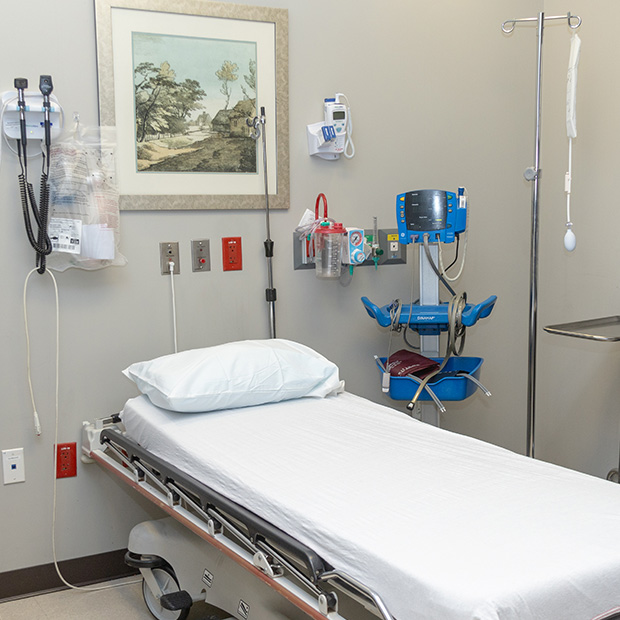
Dallas Sports Injury Emergency Care
Have You or a Loved One Been Seriously Injured?
Sports injuries are not unusual. Dedicated athletes will probably experience at least one at some point in their lifetime. In some cases, these injuries will be serious enough that they warrant a trip to the emergency room. All injuries should be treated right away, but some patients will be better served in urgent care than the emergency room, so how do you know when to go where?
Signs that an injury requires emergency treatment
- The player received a blow to the head and may have a concussion
- The injury involved the neck area
- The player received a blow to the chest and the pain is getting worse or they are having trouble breathing
- The player is having difficulty speaking or swallowing
- The player is running out of breath more quickly than usual when exercising
- The player has severe pain with moving a limb or joint after an injury
- The injury caused an open wound or a bone to become dislocated
If any of the above have occurred during sports activity or training, contact 911 immediately.
For more minor problems, like aches and pains, bruises, strains, and sprains, an urgent care clinic will be more appropriate. At Advance ER, we provide both emergency and urgent care services to both adult and pediatric patients. You can learn more about our non-emergency care services here. We have state-of-the-art imaging technology on-site to quickly assess a patient’s condition and respond with appropriate treatment. Advance ER has a Specialists Now partnership which allows patients access to a variety of specialists from our Dallas emergency room.
Contact the professionals at Advance ER today to learn more about emergency sports injury care in Dallas.
What is a Sports Injury?
Sure, a sports injury refers to any injury that occurs while participating in sports or exercise. These injuries can happen due to various reasons such as accidents, poor training practices, improper equipment, or lack of conditioning.

-
 The Advance ER Team Providing Reliable Medical Care
The Advance ER Team Providing Reliable Medical Care -
 ER Insight Vital Knowledge for Life-Saving Moments
ER Insight Vital Knowledge for Life-Saving Moments -
 ER Knowledge Hub Your Source for Expertise on Health, Emergencies, and Beyond
ER Knowledge Hub Your Source for Expertise on Health, Emergencies, and Beyond
10 Steps to Take After Suffering a Sports Injury
Here are the steps to take after suffering a sports injury:
- Stop the Activity: Immediately stop the activity or sport you're engaged in to prevent further injury. Continuing to push through the pain can exacerbate the damage.
- Rest and Protect the Injured Area: Avoid putting weight or strain on the injured area. If necessary, use crutches, slings, or braces to stabilize and protect the injured part.
- Ice the Injury: Apply ice to the affected area for 15-20 minutes every few hours during the first 48 hours after injury. This helps reduce swelling and pain. Always wrap the ice pack in a cloth to prevent direct contact with the skin, which can cause frostbite.
- Compression: Use an elastic bandage to compress the injured area gently. This can help reduce swelling and provide support but ensure it's not too tight, which can restrict blood flow.
- Elevate the Injured Area: If possible, elevate the injured limb or area above the level of the heart to reduce swelling. This can be done by propping it up with pillows.
- Seek Medical Attention: If the injury is severe, involves severe pain, deformity, inability to bear weight, or if there's suspected broken bones or head trauma (such as a concussion), seek immediate medical attention. Even seemingly minor injuries might require medical evaluation, especially if the pain or swelling persists.
- Follow R.I.C.E.: Follow the R.I.C.E. protocol - Rest, Ice, Compression, and Elevation - in the initial stages of injury to minimize swelling and pain.
- Avoid Heat and Alcohol: Avoid applying heat to the injury during the first 48 hours as it can increase swelling. Also, avoid alcohol consumption, as it can interfere with the healing process and might increase bleeding and swelling.
- Follow Medical Advice: If you've sought medical attention, follow the instructions and recommendations provided by the healthcare professional. This might include specific exercises, medications, or a referral to a specialist for further evaluation or treatment.
- Rehabilitation: Once the initial acute phase has passed, consider rehabilitation exercises or physical therapy to regain strength, flexibility, and function in the injured area. Follow the prescribed exercises diligently to aid recovery and prevent future injuries.
Frequently Asked Questions
Does Advance ER have imaging equipment on-site to check for broken bones?
Yes, we have state-of-the-art diagnostic imaging, including X-rays, on-site 24/7. This allows our board-certified physicians to quickly confirm or rule out fractures and other internal injuries without delay.
I sustained a sports injury late at night. Is it better to wait until morning to see a doctor?
If you have severe pain, loss of function, or a suspected fracture, do not wait. Advance ER is open 24 hours a day. Waiting can worsen the injury, increase pain, and potentially complicate future treatment.
If I have a possible stress fracture, should I visit Advance ER?
If the pain from the suspected stress fracture is severe, debilitating, or if you are unable to bear weight, you should visit Advance ER for immediate diagnosis and stabilization.
What pain relief can be administered immediately at Advance ER for a sports injury?
Our team can administer IV pain medications and muscle relaxers, offering rapid and effective relief from severe acute pain, which is often crucial for proper diagnostic examination.
If you would like to learn more about treatment for emergency sports injury situations, contact Advance ER in Dallas today. We provide 24-hour care to both adults and children.



[8].2112210947272.png)